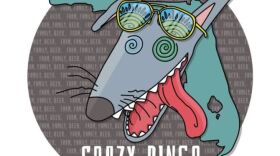Ethel Kennedy was alongside her husband, Robert F. Kennedy, on June 5, 1968, the night he won the California Democratic presidential primary, and was shot after he left the podium.
Robert F. Kennedy died the next day, leaving much of the world to wonder what might have happened if he had lived. He left behind his wife, Ethel Kennedy, and their 10 children. Ethel Kennedy was carrying their 11th, a daughter who would be born six months later.
A train carried Robert F. Kennedy's body from services in New York to burial next to his brother, at the Arlington National Cemetery. Along the way, Ethel Kennedy walked through the train cars, greeting mourners.
Pete Hamill, the columnist and friend, recalled in the oral history American Journey, "She came through trying to cheer us up, but everybody was in tears by the time she got through the car … Of all the people, she was the one that had the right to grieve, and yet she worried about our grief more than anything else … I don't know how she remembered everybody's name."
Much of Ethel Kennedy's life was poised between fame and misfortune. Her parents, George and Ann Skakel, died in a plane crash when she was in her twenties. Her brother-in-law, President John F. Kennedy, was assassinated in 1963; then her husband, Robert, five years later. She lost a son, David, to drugs, and a granddaughter, Saoirse, while another son, Michael, died in an accident. Ethel Kennedy had to live out such family losses, scandals and tragedies in public.
And yet when she died this week at the age of 96, there were also plenty of funny recollections. There were famed family parties at their home, Hickory Hill, where Beltway bigwigs could be dunked in the pool, and the writer George Plimpton said Ethel Kennedy bit him on the ankle in a touch football game.
Ethel Kennedy poured much of her life into causes she believed carried the flame of her husband's last campaign.
She dedicated herself to work in social justice, environmental protection, and poverty reduction. She founded the Robert F. Kennedy Center for Justice and Human Rights.
Ethel Kennedy received many honors, including the Presidential Medal of Freedom. But I find it symbolic that there is a bridge named for her in Washington, D.C. Ethel Kennedy used her long life, marked with so much loss, to be a bridge between people.
Copyright 2025 NPR









